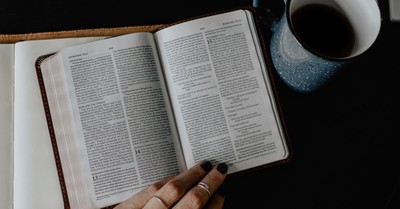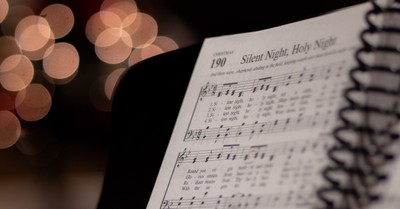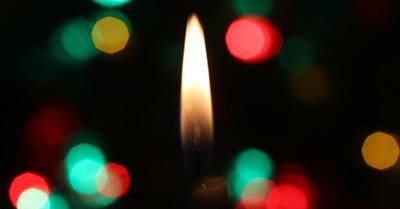The Shocking Reality of Campus Clashes across America
Late last night, police officers carrying zip ties and riot shields stormed an administration building at Columbia University being occupied by pro-Palestinian protesters and arrested dozens of people. Police have also been deployed to UCLA this morning in response to “multiple acts of violence” on campus. They have cleared out protest encampments at several other universities as well, though encampments continue at more than forty colleges nationwide.
One protester at Columbia claimed, “This is no longer an Israel–Palestine issue. It’s a human rights and free speech and a Columbia student issue.”
Not according to Columbia professor John McWhorter, who writes that the protests are a “form of abuse” against Jewish students and the larger campus community. David French, a legal specialist on free speech, adds that the campus protests, by vandalizing property and violating the rights of others, are not free expression or civil disobedience but “outright lawlessness.”
In a “post-truth” culture, how can either side persuade the other?
Is the escalating violence on our campuses a picture of our cultural future?
A legal battle over the word “woman”
Five Republican-led states have sued the Biden administration over its revisions to the Title IX code expanding “sex” to include “sexual orientation” and “gender identity.” A handful of Republican officials in other states have also stated that they will not enforce the new code requiring schools to open girls’ facilities and teams to biological boys who “identify” as girls and boys’ facilities to biological girls who “identify” as boys.
Louisiana Attorney General Liz Murrill filed one of the lawsuits, calling the revisions “a political agenda” that is “ignoring significant safety concerns for young women students” in schools across the country.
She added that this “enormously invasive” mandate that “well exceeds their statutory authority” is “coming from the people who don’t even know how to define the word ‘woman.’”
Once again, in a “post-truth” culture, how can either side persuade the other?
Is this escalating legal battle a picture of our culture’s future?
Why my father enlisted in the military
Americans were bitterly divided in the years before World War II. We were vehemently at odds over the New Deal and whether we should enter the conflict erupting in Europe. Racial and ethnic animosities pitted Protestants against Catholics, Catholics against Jews, and white people against people of color.
Then came Pearl Harbor. My father, who was anything but a fan of FDR, immediately enlisted in the armed forces, as did millions of others. Millions of other Americans came together to raise, equip, transport, and feed a fighting force that included sixteen million men and 250,000 women. Our soldiers and all who supported them became our “greatest generation.”
In the years before 9/11, trust in government fell to historic lows. President Clinton’s impeachment, followed by the closest presidential election in American history, bitterly divided Americans. In June 2001, only 43 percent said the country was on the right track.
Then came the Tuesday morning that changed the world. After the 9/11 terrorist attacks, 72 percent said the nation was headed in the right direction, compared with just 11 percent who disagreed. President George W. Bush’s approval rating soared to 90 percent, the highest in Gallup history. Flags were flown across the nation; celebrities organized benefit concerts; many attended impromptu candlelight vigils.
“That government is best which governs least”
Across our history, we have been able to set aside our differences when facing external threats to our nation. Absent such danger, however, our unity has suffered.
No other nation in the world has as large an immigrant population as the United States. From our inception, we were united less by race or religion than by a shared desire to forge a democracy that would ensure maximum individual freedom for minimal governmental cost. Henry David Thoreau spoke for many: “That government is best which governs least.”
Today, our nation is comprised of nearly fifteen hundred different race and ethnicity groups and more than 370 different religions. We are more divided politically with each passing year. The fall election promises to deepen the political and cultural chasms between us.
However, unlike previous eras of disunity, we are no longer united around consensual conceptions of truth and morality. It’s not just that we have different compasses; we no longer believe there is a true north to which anyone’s compass can point.
Where can this lead except to further division and chaos?
How your life can “make sense” today
Jesus, the “light of men” (John 1:4), came into a world as darkened by deception and division as ours. Sexual immorality on levels I will not describe was rampant. A morass of pagan philosophies and corrupt religions dominated the culture.
But as John reported, the light Jesus brought into the world “shines in the darkness, and the darkness has not overcome it” (v. 5). By Acts 17:6, the church Jesus launched had “turned the world upside down.” Over time, what started as a fledgling band of Galileans became the most powerful spiritual movement the world has ever seen.
Today, the global church is seven times larger than the entire American population. Everywhere the kingdom of God is advancing, it is bringing biblical truth and morality that produces flourishing lives God can bless.
Rick Warren made our point today:
“You were made by God and for God, and until you understand that, life will never make sense.”
Will your life “make sense” today?
Wednesday news to know:
- Charlotte shooting: Shocking video emerges of horror shoot-out that left four law enforcement officers dead
- Wages, employment, inflation are up, causing headaches for the Fed
- US consumer confidence drops to its lowest level in nearly two years
- Ancient text reveals details of Plato’s burial place and final evening, experts say
- On this day in 1960: American U-2 spy plane shot down over Soviet Union
Quote for the day:
“Truth is the agreement of our ideas with the ideas of God.” —Jonathan Edwards
Photo Credit: ©Getty Images/Spencer Platt / Staff
Publish Date: May 1, 2024
Jim Denison, PhD, is a cultural theologian and the founder and CEO of Denison Ministries. Denison Ministries includes DenisonForum.org, First15.org, ChristianParenting.org, and FoundationsWithJanet.org. Jim speaks biblically into significant cultural issues at Denison Forum. He is the chief author of The Daily Article and has written more than 30 books, including The Coming Tsunami, the Biblical Insight to Tough Questions series, and The Fifth Great Awakening.
The views expressed in this commentary do not necessarily reflect those of CrosswalkHeadlines.
For more from the Denison Forum, please visit www.denisonforum.org.
The Daily Article Podcast is Here!

.jpg)


















